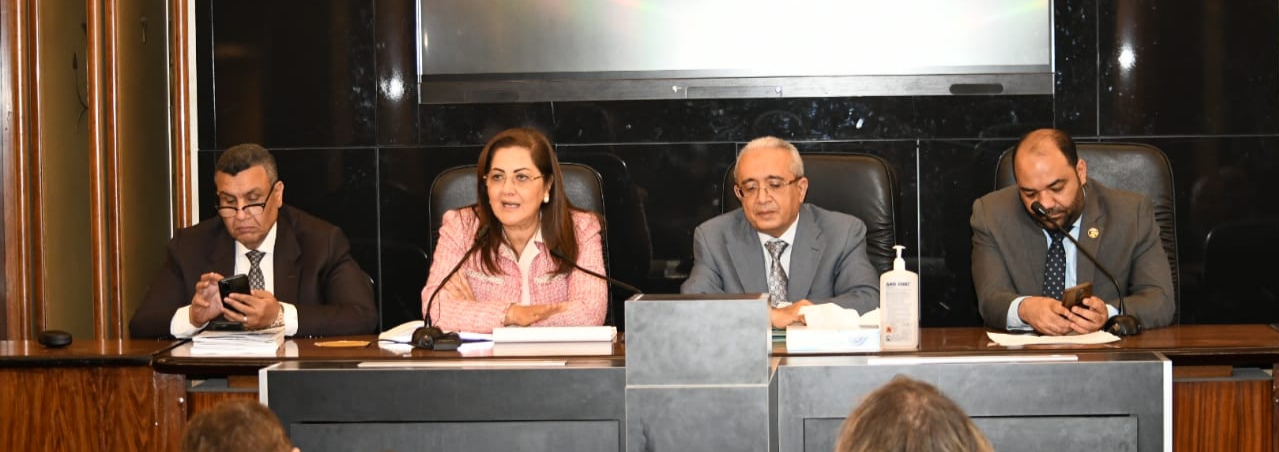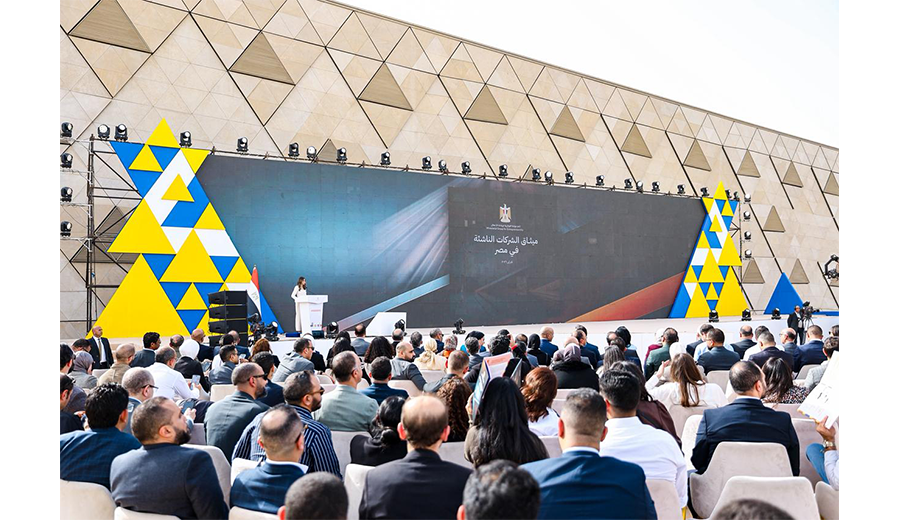The Minister of Planning and Economic Development reviews the initiatives and programs of the youth and cultural services, and the agricultural and irrigation sector

26 April 2021
Hala El-Said, Minister of Planning and Economic Development, reviewed the initiatives and programs of the youth and cultural services sector, and the agricultural and irrigation sector, during her discussion of the draft statement of the sustainable development plan for the fiscal year 21/2022; The fourth year of the Sustainable Development Plan (18 / 2019-21 / 2022) before the Plan and Budget Committee in the House of Representatives.
During the committee meeting, Dr. Hala El-Said referred to the initiatives and programs of the youth and cultural services sector in the sustainable development plan for the fiscal year 21/2022, explaining that the strategic objectives of these initiatives are to expand the availability of youth and sports services at a value of EGP 3.5 billion through the establishment and development of youth centers and youth cities, youth camps, civic education centers, youth forums, stadiums, clubs and sports complexes, sports stadiums, sports development centers, schools for the talented athletes, covered halls, in addition to expanding the availability of cultural services worth EGP1.3 billion through the initiative to establish and develop cultural palaces, houses of culture, theaters, public libraries, and museums.
Concerning expanding the availability of youth services, El-Said pointed to the establishment and development of youth centers in all governorates of Egypt with funds amounting to EGP 327 million, as well as the establishment and development of 7 youth cities in the governorates of Cairo, Luxor, Aswan, New Valley, Port Said, Suez, South Sinai, in addition to establishing and developing 6 youth forums in the governorates: North Sinai, South Sinai, Suez, New Valley, and Giza.
On the expansion of the availability of sports services, El-Said explained that this will be done through the establishment and development of 7 sports stadiums, 8 sports clubs, 6 clubs for the disabled, 14 covered halls, 2 sports cities, 11 swimming pools, pointing to the expansion in the availability of cultural services through the establishment and development 20 culture Palace, 11 Culture House, 8 Cultural Paths, 9 Public Libraries, 3 Museums in Cairo Governorate.
During the meeting, El-Said highlighted the initiatives and programs of the agricultural and irrigation sector in the plan.
She explained that the strategic objectives of these initiatives are the optimal utilization of water resources through initiatives: lining and rehabilitating canals, exploiting underground water, and harvesting rain and torrential water, transporting water from the Bahr Al-Ba'ar drain treatment plant, and modern irrigation.
Concerning the initiative to rehabilitate and lining canals, El-Said stated that the goals of this initiative are an economic goal by providing job opportunities, acquired agricultural lands, and a social goal of fair distribution of water, and an environmental goal of saving 5 billion m3 / year.
El-Said explained that the overall objectives of the project include the rehabilitation of 7,000 km and the total cost of EGP 17.5 billion, and the timeframe for it 2021/20 - 2022/21 “The First Phase”, in addition to completing the remainder with about 1,200 km for EGP 4 billion in 2023/22.
Dr. Hala El-Said referred to the sub-canal project No. 4 in the Toshka area, "Sheikh Zayed Canal", which aims to optimize the utilization of water resources in the Toshka area. The targeted canals lengths are 9 km, and the project appropriations amount to EGP 1.2 billion.
Concerning the project of transferring the water produced from the "Bahr Al-Baqar" drainage treatment plant to the lands planned for cultivation in Sinai, El-Said explained that the strategic goal of this project is to transfer the water of the Bahr Al-Baqar drain to the east of the Suez Canal through Al-Salam Canal to increase the agricultural area in Sinai to about 330,000 acres The target amount of water to be transported is 5 million m3 / day, and the number of pumping stations targeted for construction is 2 stations (Shader Azzam, the entrance to the Peace Canal), and the project appropriations amount to EGP 3 billion.
On the modern irrigation system in the old lands, El-Said pointed out that the strategic goal of this system is to develop and modernize the modern irrigation system in 1.4 million feddans small holdings - less than an acre (3.4 million holders) by switching from flood irrigation to modern irrigation (total cost 18 Approximately one billion pounds) by modernizing the irrigation system in about 83,000 feddans.
The financial provision for this project is EGP 1 billion, explaining that the importance of the project is to provide the water consumed in irrigation (the average amount of water that is saved 1,400 m3 per acre) 116 million m3 annually, in addition to increasing agricultural productivity from 10% to 20%, in addition to Increase the income of rural families, reduce irrigation time and labor costs, in addition to improving field irrigation efficiency, achieving equitable distribution of irrigation water.









